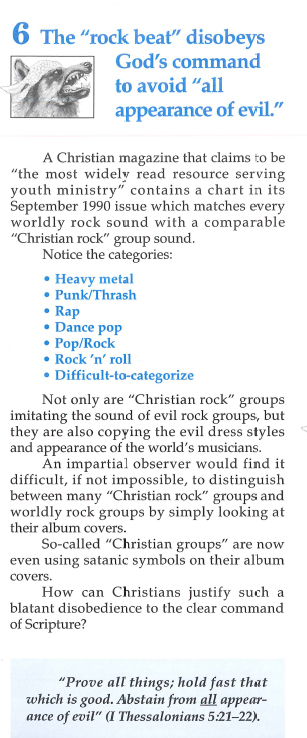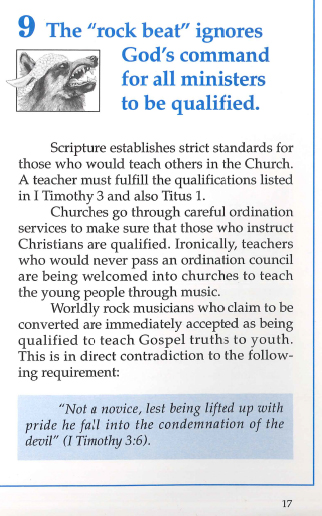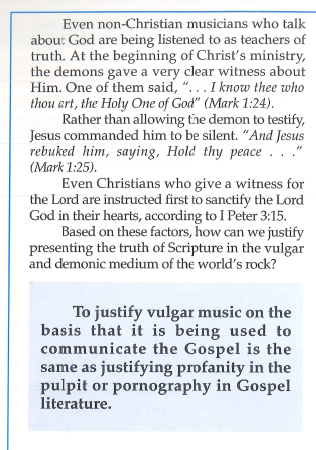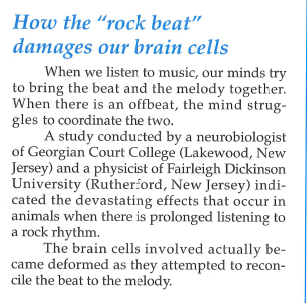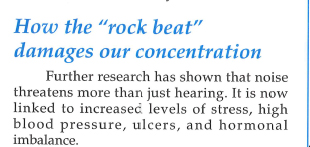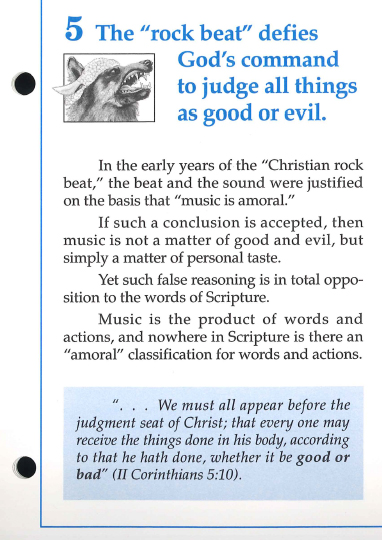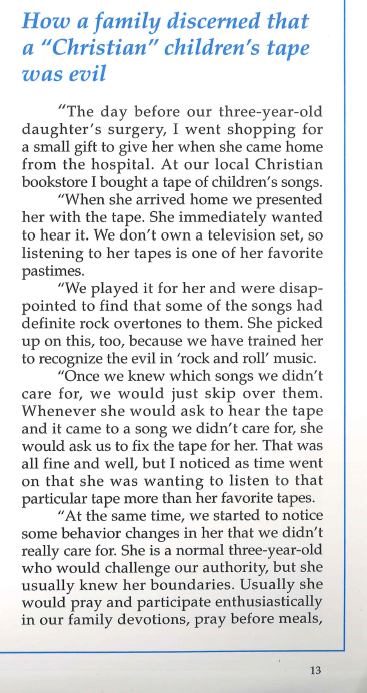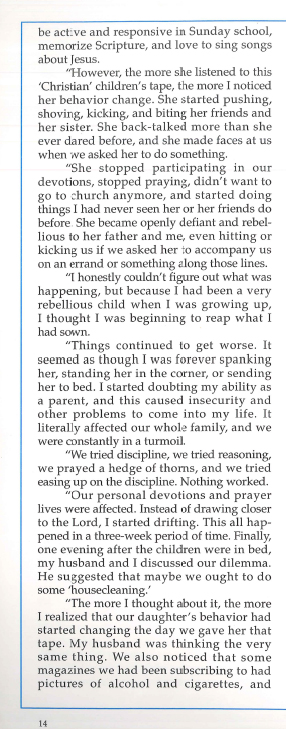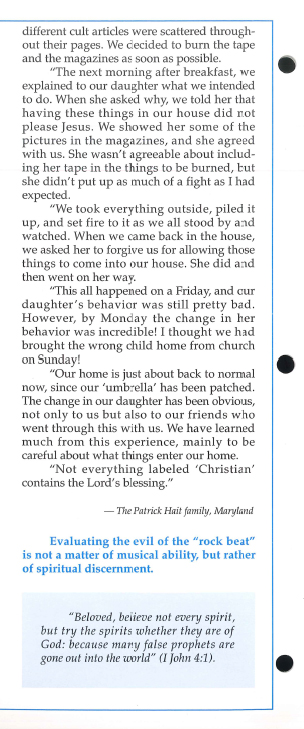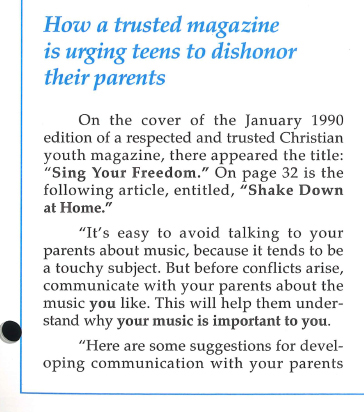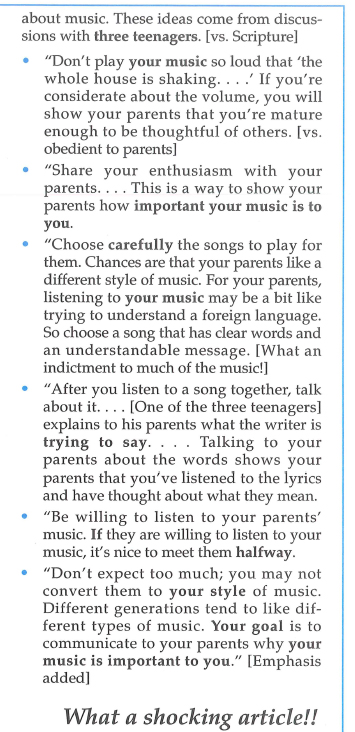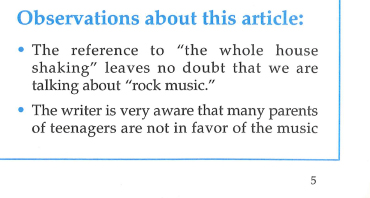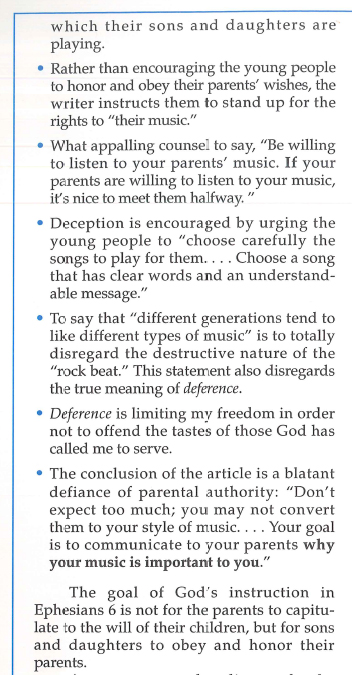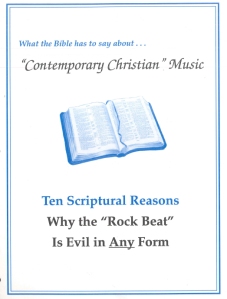One of the warning signs that you have come into contact with a cult is the need to learn an entirely new vocabulary. Common words are redefined, and concepts that are inherently contradictory are said to be the same thing. Scientology is scarily good at this, and is famous for requiring students to study with a Scientology dictionary in hand, looking up any terms they don’t understand to get their unique definition of each one. I was intrigued by the section on “cult speak” on this website (please note that I haven’t read the entire page and I can’t vouch for the credibility of it’s author. But what he says about cult speak rings very true of IBLP.)
So today we’re looking at a couple pages from the Advanced Siminar booklet. I’m afraid I don’t know that much about this particular resources: it was a large notebook passed from one of my father’s mentors onto him many years ago. A handwritten note in the cover mentions a seminar in Dallas, TX in 1975. The materials obviously pre-date ATI (no mention of homeschooling is made, and many examples speak as though the reader would be in a school setting), and some of the terminology was later changed by Gothard (for example, “chain of command” was later changed to “umbrella of protection,” although no real changes were made in the teachings.) What caught my eye when glancing through it was the 4 pages of “operational definitions.” Some of them make sense, but others are downright scary. Let’s take a look.
Ok, this one is interesting to examine, considering that my last post was titled “I’m Angry.”
So,if you are angry, it’s because there are rights that you have not given to God. In case you are unfamiliar with the concept, Gothard spends a great deal of time in his Basic Seminar explaining how it is important that we give up our rights. Christ gave us his rights when he came to this Earth, and we should give up our rights as well.
The problem with this thinking is that it primes people for abuse. Instead of learning about healthy limits, and how to recognize when they were being used, ATI students were taught to treat every wrongdoing as an opportunity to “give up rights.” This is extremely dangerous in the exact type of situations that people at Headquarters and Training Centers often had to face: refusal to pay overtime, solitary confinement for rule infractions, unwanted advances from leaders.
This definition portrays anger as a sign of sin on the part of the one who is angry, regardless of the situation. Imagine applying this definition when someone was angry over the murder of a loved one, angry about sexual abuse in their past, or angry about a pastor who ran off with the church’s money. In each of these situations, anger is seen as a sign that something is wrong with the person who is angry. That’s just sick.
Let’s look at the Scripture verses listed after the definition, because people often glance at the references, assume the Bible supports Gothard’s point, and move on. This is dangerous, because Gothard is not above twisting Scripture, as we can see here.
Be ye angry, and sin not: let not the sun go down upon your wrath: (Eph 4:26)
Let all bitterness, and wrath, and anger, and clamour, and evil speaking, be put away from you, with all malice (Eph 4:21)
See? The Bible tell us to be angry (with a warning not to sin while being angry), and Gothard uses that Scripture to support his idea that anger is always a sign of sin. The second verse has absolutely nothing to do with the definition that Gothard has just given us; it’s just a random verse that happens to reference anger.
Nothing about understanding the other person, nothing about conveying accurate information; nope, this is plain and simple manipulation. I include this one not because it’s so terribly dangerous, but because it’s an interesting insight into what Gothard sees himself as doing. To him, communication is not about two (or more) people coming to understand each other. Rather, it’s about one person with an objective, and the way he achieves that objective.
Oh, and that verse in Proverbs? Again, just a random verse about talking.
The tongue of the wise useth knowledge aright: but the mouth of fools poureth out foolishness. (Prov. 15:2)
One-way, much? This is a power-play, plain and simple. You have to conform to my tastes, and I’m not required to do anything. This becomes particularly terrifying when you consider the “chain of command” authority structure Gothard envisions for families; a wife has no alternative but to bow her head, forget her personal preferences and “limit (her) freedom” to conform to whatever her husband demands. In a healthy relationship, that’s not too horrible of a thing. This teaching in the hands of an abuser, or a control-freak, is extremely damaging.

I read this to my wife this morning, and she just about flipped out. The issue here (and in so much of purity culture) is that it places a completely impossible burden on women. Intention doesn’t come into the picture at all. If, by her mere existence, a girl “causes” a man to lust, she is defrauding. The focus is taken off of the inappropriate actions of a man who is ogling someone, and places the focus on someone whose most serious crime might be nothing more than existing in the body that God gave her.
Never mind “weep with those who weep.” If you have discretion, you will know exactly how to preach Gothard’s talking points!
Discretion shall preserve thee, understanding shall keep thee (Prov 2:11)
Notice how that verse has nothing at all to do with applying principles?
This is a strange teaching of Gothard which boils down to don’t have an opinion. If you are seeking God’s direction on a matter (and keep in mind that this is to be done by going to your “authorities”), then you should bring yourself to a point that you are ok with being “led” (told to go) in either direction.
This is dangerous because personal opinions and preferences matter. They are important. They are part of what make you an individual. A person without preferences is not a healthy person. And more importantly, a person taught to suppress their preferences, and taught that they must always follow the directives of those in authority is ripe for abuse.
What? No,no, and…What? This isn’t what equity means; it isn’t even close to what equity means! Equity is “the quality of being fair and impartial.” You can’t just declare that a word suddenly means something totally different than what it actually means. And tacking some irrelevant verse on the end doesn’t mean you have good reason to make words mean whatever you want them to.
There are several more “definitions” that I’d like to look at (did you know that frustration means you have failed?), but it’s getting late, so those will have to wait for another time. My bed is calling me! Be sure to like us on Facebook or follow on Twitter so you don’t miss part two!







